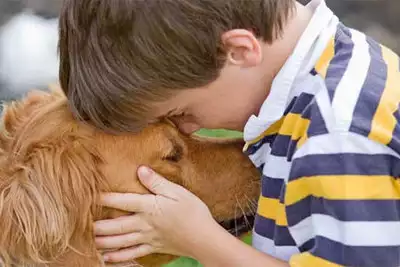The companionship and joy that pets bring into our lives are undeniable, but it’s essential to recognize that pet ownership also has an environmental impact. From the production of pet food to the disposal of pet waste, the choices we make as pet owners can have far-reaching consequences for the planet. In this blog, we’ll explore the environmental footprint of pet ownership, highlight sustainable practices for responsible pet ownership, and discuss how we can minimize our impact on the environment while still providing the best care for our furry friends.
Understanding the Environmental Impact of Pet Ownership
Pet Food Production
One of the most significant contributors to the environmental footprint of pet ownership is the production of pet food. The manufacturing process for pet food requires land, water, and energy resources, as well as the production of ingredients such as meat, grains, and vegetables. The cultivation of these ingredients can lead to deforestation, habitat loss, and greenhouse gas emissions, contributing to environmental degradation and climate change.
Packaging Waste
Another environmental concern associated with pet ownership is the generation of packaging waste from pet food, treats, toys, and other pet products. The production, packaging, and transportation of these items require resources and energy, and the disposal of packaging waste contributes to landfills and pollution.
Pet Waste
The disposal of pet waste is another environmental issue that pet owners must contend with. Pet waste contains harmful bacteria and pathogens that can contaminate soil and waterways if not properly disposed of. When pet waste is left on the ground or washed into storm drains, it can contribute to water pollution and harm aquatic ecosystems.
Sustainable Practices for Responsible Pet Ownership
Choose Sustainable Pet Food Options
One of the most effective ways to reduce the environmental impact of pet ownership is to choose sustainable pet food options. Look for pet foods that use locally sourced, organic ingredients, and prioritize sustainable farming practices. Consider alternative protein sources such as insect-based or plant-based proteins, which have a lower environmental footprint compared to traditional meat-based diets.
Reduce Packaging Waste
To minimize packaging waste, opt for pet food and products that use minimal packaging or are packaged in recyclable or biodegradable materials. Buy in bulk whenever possible to reduce the amount of packaging waste generated, and choose products with minimal packaging or packaging-free options.
Dispose of Pet Waste Responsibly
Properly disposing of pet waste is essential to prevent contamination of soil and waterways. Use biodegradable or compostable pet waste bags when cleaning up after your pet, and dispose of pet waste in designated waste bins or composting facilities. Avoid flushing pet waste down the toilet, as this can lead to water pollution and strain on sewage systems.
Choose Eco-Friendly Pet Products
When selecting toys, bedding, and other pet products, choose options that are made from sustainable materials such as organic cotton, hemp, or recycled materials. Look for products that are free from harmful chemicals and toxins and are produced using eco-friendly manufacturing processes.
Educating Others and Advocating for Change
Raise Awareness
Educating others about the environmental impact of pet ownership and the importance of sustainable practices is essential to effecting change. Share information about sustainable pet care practices with friends, family, and fellow pet owners, and encourage them to adopt environmentally friendly habits.
Support Sustainable Pet Industry Practices
Support pet food companies and pet product manufacturers that prioritize sustainability and environmental stewardship. Choose products from companies that use eco-friendly ingredients, packaging, and manufacturing processes, and advocate for greater transparency and accountability within the pet industry.
Advocate for Policy Changes
Advocate for policy changes at the local, state, and national levels to promote responsible pet ownership and reduce the environmental impact of pet ownership. Support initiatives that promote pet adoption, spaying and neutering, and responsible breeding practices, and advocate for policies that promote sustainability in pet food production, packaging, and waste management.
Conclusion: Balancing Pet Ownership and Environmental Stewardship
In conclusion, responsible pet ownership involves more than just providing food, shelter, and care for our furry friends—it also requires us to consider the environmental impact of our choices and take steps to minimize our carbon pawprint. By adopting sustainable practices such as choosing eco-friendly pet products, reducing packaging waste, and disposing of pet waste responsibly, we can ensure that our pets bring joy and companionship into our lives without harming the planet.
As pet owners, we have a responsibility to be stewards of the environment and protect the natural world for future generations of pets and people alike. By adopting sustainable practices and advocating for change within the pet industry and our communities, we can create a more sustainable future for pets, people, and the planet. Let’s work together to ensure that our furry friends can continue to bring joy, comfort, and companionship into our lives for years to come, while also preserving the beauty and diversity of the world around us.






